Professor Michael Breadmore
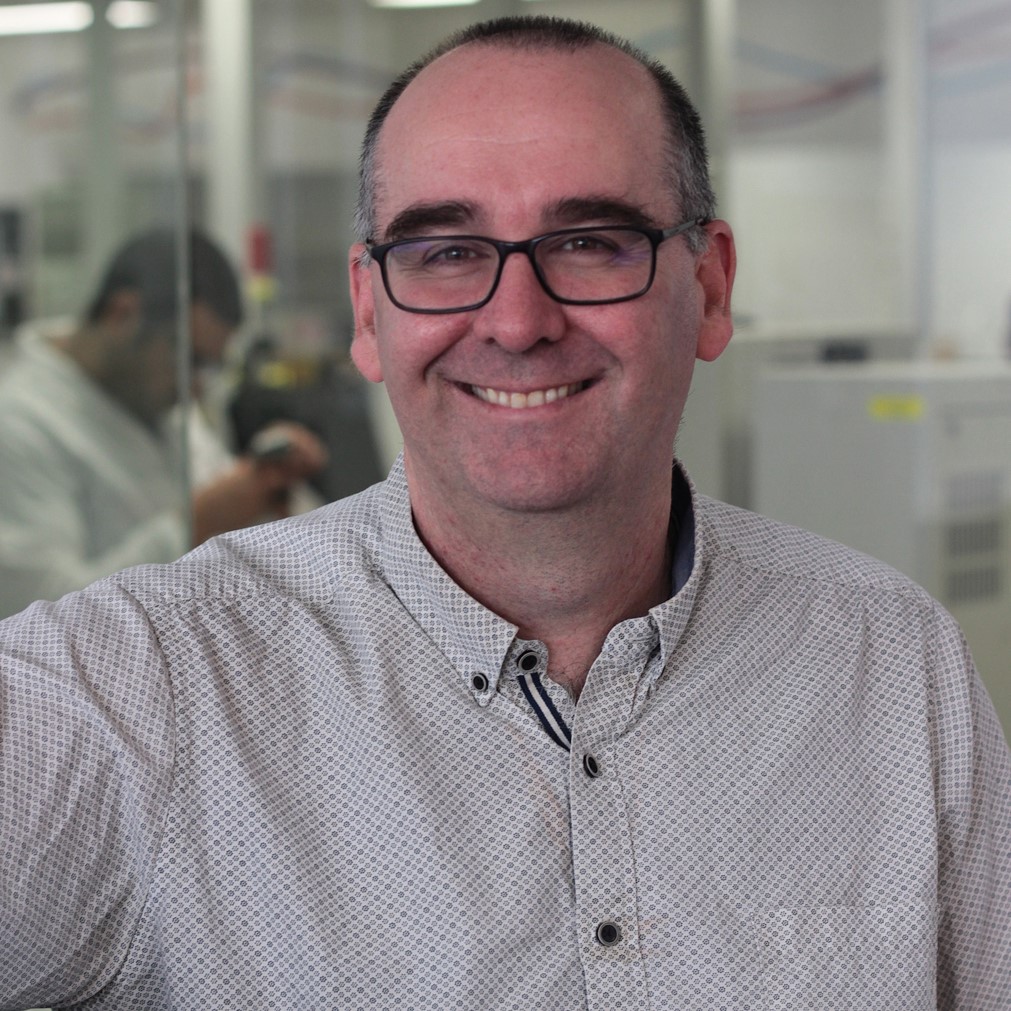
Host Institution: Stanford University
Award Name: Fulbright Future Scholarship, Funded by the Kinghorn Foundation
Discipline: Analytical Chemistry
Award Year: 2023
Michael obtained his PhD in Analytical Chemistry in 2001 from the University of Tasmania (UTAS), and was awarded his DSc in 2017. He has published over 180 peer-reviewed papers, supported over the past 18 years at UTAS with over $22M of research funding. He has held three Australian Research Council fellowships, and received numerous prizes and recognition, including the 2019 Eureka Prize for Outstanding Science for Safeguarding Australia. Michael is a co-inventor on a number of patents, with four commercial products at market, and in 2022 was made a fellow of the Australian Academy of Technological Sciences and Engineering (ATSE).
Michael’s Fulbright research aims to develop a new dry, solid-state platform with which to measure important molecules for personalised medicine, environmental analysis, forensic science and industry process monitoring and control.
Daniel Hackett
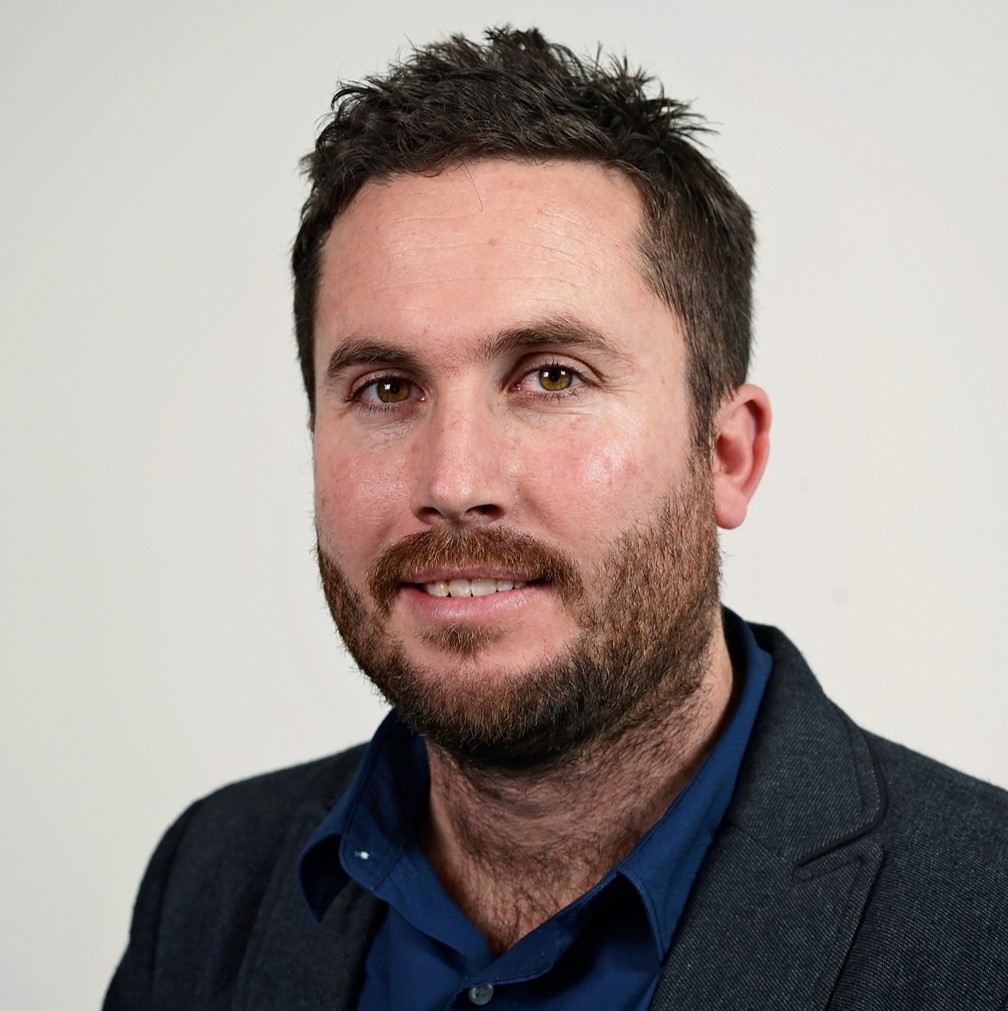
Host Institution: Pennsylvania State University
Award Name: Fulbright Tasmania Scholarship, Funded by the University of Tasmania and the Tasmanian Government
Discipline: Management of Wilderness and Wild Places
Award Year: 2023
Daniel is a twenty-year veteran of the Tasmanian tourism industry, and is known for his Tasmanian and Australian tourism award-winning protected area and wilderness operations. Daniel is currently undertaking a PhD in Environmental Studies at the University of Tasmania, investigating theoretical and policy frameworks behind the mapping, designation and management of wild places and soundscapes as wilderness.
Daniel’s Fulbright Scholarship will further his studies with host Pennsylvania State University, and will include new data collection and research relating to the experience of remoteness in wilderness areas featuring air access and overflights.
Ella Sophia Hilder
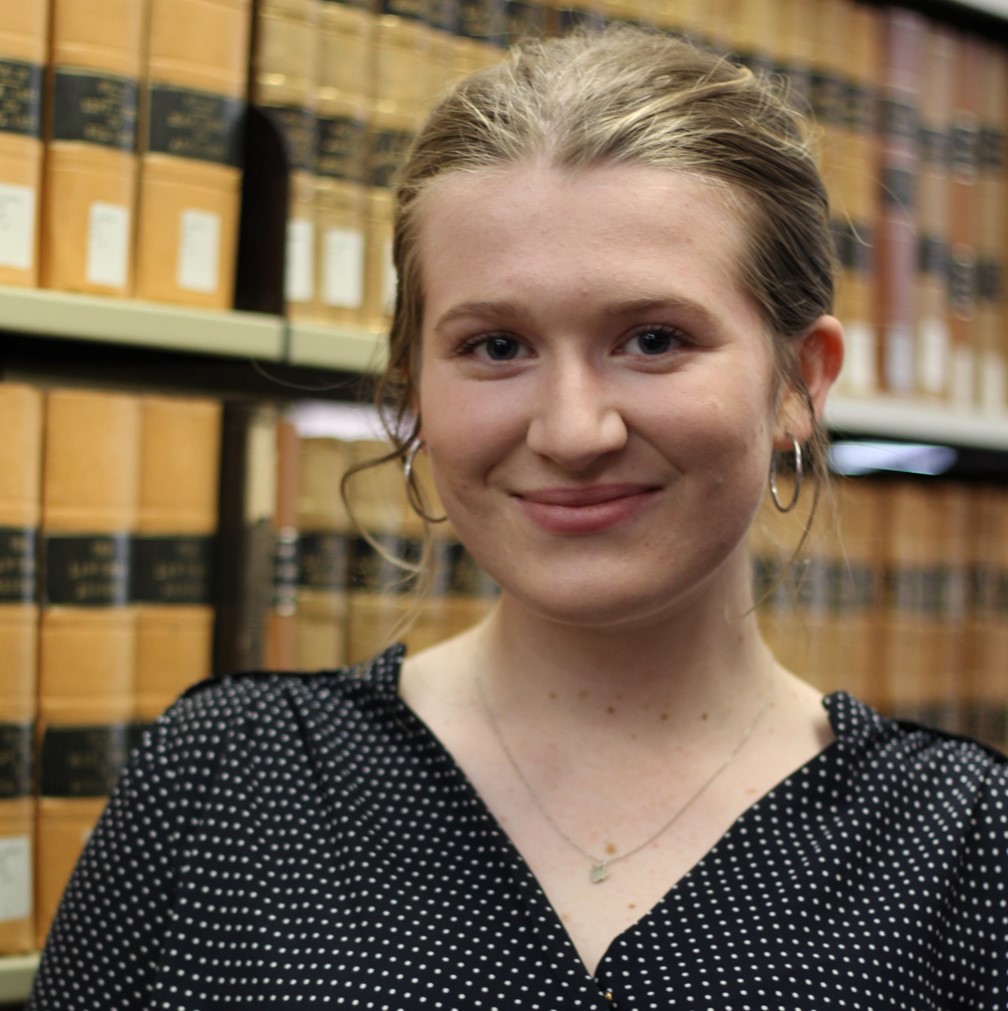
Host Institution: To be confirmed
Award Name: Fulbright Tasmania Scholarship, Funded by the University of Tasmania and the Tasmanian Government
Discipline: International and Technology Law
Award Year: 2023
Ella is pursuing a career in international and technology law, with a particular focus on policy in the Asia-Pacific region. Ella graduated in 2021 with a Bachelor of Arts (majoring in International Relations) and a Bachelor of Laws from the University of Tasmania; and was admitted to practice in the Victorian Supreme Court in 2022. Her passion for technology law was sparked while completing her First-Class Honours thesis which focused on the European Union’s world-leading General Data Protection Regulation.
For her Fulbright Scholarship, Ella plans to undertake a Master’s degree in Technology Law and Policy.
Professor Timothy Brodribb
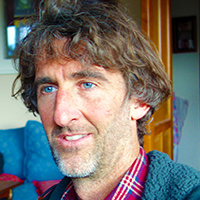
Host Institution: University of California Santa Cruz
Award Name: Fulbright Future Scholarship (Funded by The Kinghorn Foundation)
Discipline: Plant Biology
Award Year: 2022
Tim is currently a Professor of Plant Biology at the University of Tasmania, the same institution where he graduated with a BSc in Biology. His doctoral studies examined the evolution and function of conifers in the Southern Hemisphere involving extensive field work in the forests of PNG, New Caledonia, New Zealand and South America. Following this, he worked as a postdoc at Harvard University studying plant physiology in Costa Rican forest trees, before returning to Australia to undertake an Australian Research Council Future Fellowship award. Tim now leads a lab group that focusses on the vulnerabilities of plants during drought. His Fulbright will allow him to travel to northern California to use technology developed by his group to monitor the impact of climate on plant stress levels
Travis Britton
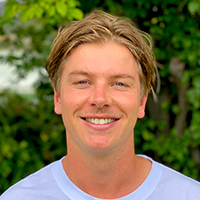
Host Institution: University of California, Santa Barbara
Award Name: Fulbright Future Scholarship (Funded by The Kinghorn Foundation)
Discipline: Plant Ecophysiology
Award Year: 2022
Travis is a plant eco-physiologist researching how ecological interactions influence tree growth and survival. His work is largely focused on how ecological interactions among neighbouring plants modify the direct effects of environmental change in forest communities. He is particularly interested in whether integrating broad-scale climatic conditions with local-scale ecological interactions increases our ability to accurately predict tree performance.
As a Fulbright Scholar, Travis will seek to improve our understanding of how plant physiology and various ecological interactions determine drought-driven tree mortality. The outcomes of his Fulbright research will inform models predicting future drought impacts on forest ecosystems and assist in maximising the success of future conservation efforts.
Ariane Moore
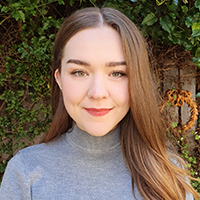
Host Institution: The University of Texas at Austin
Award Name: Fulbright Tasmania Scholarship, Funded by the University of Tasmania and the Tasmanian Government
Discipline: Philosophy of Religion
Award Year: 2022
Ariane Moore is a PhD candidate in philosophy of religion at the University of Tasmania. Ariane researches the intersection between belief and non-belief, investigating whether secular people can access experiences that are traditionally exclusive to faith. She graduated from Deakin University with first class Honours for her thesis on the coherence of ritual atheism. As a Fulbright Scholar, Ariane will study in the Philosophy Department of the University of Texas at Austin under the supervision of Professor Paul B. Woodruff. She aims to contrast a Kantian experience of the sublime with a secular mystical experience.
Kathy Willis
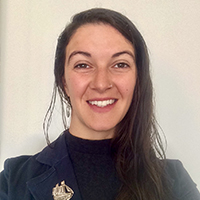
Host Institution: University of Washington
Award Name: Fulbright Future Scholarship (Funded by The Kinghorn Foundation)
Discipline: Marine Socio-ecology
Award Year: 2021
Kathryn is a marine socio-ecologist who is particularly interested in how communities can establish bestpractice conservation management strategies in marine systems, and in doing so, maximise their environmental and social impact. Kathryn recently completed a PhD at the University of Tasmania, where she studied how Australian local governments can effectively manage plastic pollution.
For her Fulbright Scholarship, Kathryn will spend 10 months working with Professor Julia Parrish at the University of Washington. Kathryn will compare how effective different waste management strategies are at reducing plastic pollution in both Australia and the United States. Kathryn’s goal is to then apply this knowledge to establish best-practice waste management strategies in communities around the world and reduce the harms of plastic pollution.
Kate Johnson
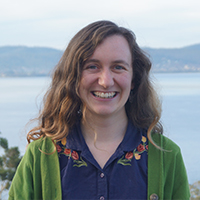
Host Institution: Harvard University/Yale University
Award Name: Fulbright Future Scholarship (Funded by The Kinghorn Foundation)
Discipline: Plant Physiology
Award Year: 2021
Kate is a plant physiologist researching how drought kills trees through damage to the pipe-like cells that transport water in plants (called ‘xylem’). In drought conditions, rapid entry of air into the xylem results in air bubbles (embolisms) which block the flow of water leading to plant damage and death. Kate is particularly interested in how xylem arrangement and connectivity influence the way that air spreads through the water transport system and whether this is linked to the drought resistance/ vulnerability of trees.
As a Fulbright scholar Kate will use the latest techniques (which utilise x-rays and optical light) to visualise, map and model drought-induced air spread through the xylem of trees. In collaboration with experts in plant physiology, Kate will use this information to predict the timing of drought-induced death and damage in different tree species which will ultimately help to inform management of native and commercial forests in the face of increasing drought.
Dr Louise Grimmer

Host Institution: University of South Carolina
Award Name: Fulbright Future Scholarship (Funded by The Kinghorn Foundation)
Discipline: Marketing
Award Year: 2021
Louise is a marketing academic at the University of Tasmania with a passion for retail stores and local shopping precincts. Louise is also Senior Fellow with the Institute of Place Management and her research focuses on place marketing strategies for towns and cities, with an emphasis on small and independent retailers as drivers of economic prosperity and social cohesion. As a result of COVID-19, there is growing interest in the future of the retail sector, drivers and barriers for local shopping, and how individual retailers and shopping precincts can best respond to changes in work patterns and consumer behaviour.
As a Fulbright Scholar, Louise will spend three months at the University of South Carolina examining retail place marketing strategies. Upon her return to Australia, she will continue her leadership in place-based retail research, working with local communities, contributing to scholarship and policy development and assisting place marketing practitioners and retailers.
Dr Louis Stevenson

Host Institution: Harvard University
Award Name: Fulbright Future Scholarship (Funded by The Kinghorn Foundation)
Discipline: Public Health
Award Year: 2021
Louis is an ophthalmology trainee at the Royal Victorian Eye and Ear Hospital with an interest in public health. After completing his Bachelor of Medicine and Surgery at the University of Tasmania he studied a Master of Medicine (Ophthalmic Science) at the University of Sydney. Louis’ research interests include epidemiology and clinical ophthalmology and he has published significantly in these areas. Having worked across remote Western Australia with Lions Outback Vision, a mobile outreach ophthalmology service, he has seen the significant inequalities that exist in healthcare across Australia.
He will use his Fulbright Scholarship to study a Master of Public Health with a special focus on health economics. By incorporating these skills with his existing research interests, Louis will strive to optimise the delivery of health services in Australia to achieve a more equitable and sustainable system.
Dr Helen Nahrung
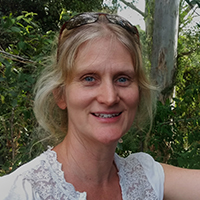
Host Institution: USDA Forest Service, Northern Research Station
Award Name: Fulbright Future Scholarship (Funded by The Kinghorn Foundation)
Discipline: Entomology
Award Year: 2021
Helen is a Senior Research Fellow at USC’s Forest Research Institute, working in partnership with the Department of Agriculture and Fisheries. She holds an Advance Queensland Fellowship on forest insect invasions, is President of the Entomological Society of Queensland, and Deputy Chair of the national Forest Health and Biosecurity Sub-committee of the Australian Forest Products Association. Her research focuses on understanding insect invasion processes towards their prevention and management: invasive insects cause severe economic and environmental impacts globally, moving accidentally via trade and travel.
As a Fulbright Scholar, Helen will work with leading invasion biologist Dr Andrew Liebhold to examine insect establishments and interceptions between Australia and the United States – an unwanted reciprocal exchange. We hope to use our improved bilateral understanding of insect movement between our respective countries to identify strategies to reduce the likelihood of future damaging invasions.
Calum Cunningham
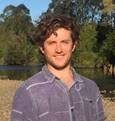
Host Institution: University of Washington
Award Name: Fulbright Tasmania Scholarship (Funded by the Tasmanian Government and the University of Tasmania)
Discipline: Conservation/Ecology
Award Year: 2020
Calum is a wildlife ecologist and postdoctoral researcher at the University of Tasmania, where he researches how apex predators shape ecosystems. Calum is especially interested in whether large predators can reduce the abundance and effects of smaller introduced predators (like foxes and cats), and in doing so, protect small prey species. For his Fulbright Scholarship, Calum will spend 10 months working with Associate Professor Laura Prugh at the University of Washington. Calum will make use of a series of “natural experiments”, like the recovery of wolves in parts of the U.S. and the decline of Tasmanian devils in Australia, to assess how scavenging affects the wellbeing of ecosystems and humans. Ultimately, Calum aims to glean new understanding of the intricacies of how ecosystems function, and then apply this knowledge to help stem the tide of extinction.
Penny Pascoe
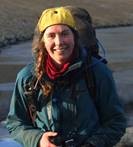
Host Institution: Northern Illinois University (NIU)
Award Name: Fulbright Future Scholarship (Funded by The Kinghorn Foundation)
Discipline: Ecology
Award Year: 2020
Penny is passionate about understanding remote and wild ecosystems and undertaking research applicable to conservation and management. Islands are global biodiversity hotspots but are often threatened by invasive mammals. Whilst successful eradication of invasive mammals from islands is becoming more common, evaluating ecosystem response post-eradication is both challenging and expensive. Penny’s PhD is investigating the recovery of island ecosystems following the eradication of invasive mammals. Collaborating with leading researchers at NIU, Penny will investigate the use of stable isotopes to monitor the progression of recovery in island ecosystems by undertaking a large-scale natural experiment across more than 30 Australian, New Zealand and sub-Antarctic islands. Seabird guano provides significant nutrient input to many non-invaded islands, and these nutrients have a traceable stable isotope signature. By comparing never-invaded islands to islands at different stages post-eradication, Penny’s research will investigate a novel cost and time-efficient technique for assessing the progression of ecosystem recovery in Australia.
Lachlan Tegart

Host Institution: National Institute for Occupational Safety and Health, Centers for Disease Control and Prevention
Award Name: Fulbright Future Scholarship (Funded by The Kinghorn Foundation)
Discipline: Medical Science
Award Year: 2020
Lachlan is a PhD candidate at the Menzies Institute for Medical Research at the University of Tasmania. His research is examining the triggers of hay fever, a common and debilitating allergic disease. As part of his Fulbright Future Scholarship, Lachlan will be working with a world leader in aerobiology (the study of airborne biological particles that affect human health). He will be implementing a new technique called the Halogen Immunoassay. This will provide scientifically robust information about which pollen types are triggers of allergy symptoms. Importantly, this method is able to detect novel pollen allergens, including Australian native taxa that cannot be tested for using conventional techniques.
Upon his return to Tasmania, Lachlan hopes that his training will help to contribute to the knowledge of aerobiology in Australia which can foster improvements in the diagnosis and treatment of hay fever and allergies
Dr Leon Barmuta

Host Institution: Division of Biology, Kansas State University
Award Name: Fulbright Scholar Award (Funded by Kansas State University)
Discipline: Ecology
Award Year: 2020
Leon is an ecologist specialising in freshwaters who has taught and researched at the University of Tasmania since 1991. He has worked extensively with water managers, foresters and biodiversity advisors, chiefly in Australia.
A frequent problem that he has encountered with applying ecological research is the mismatch between the scale at which measurements are made and the scale at which actions need to be taken. Interventions at too small or too large a scale may be ineffective at best. Leon will use his Fulbright Scholarship to work with pioneers in scaling research at Kansas State University. He hopes to help solve some technical issues involving nutrient transformations in streams as a prelude to developing a longer-term collaboration to guide environmental scientists to work across scales more effectively.
Professor Graeme Jones

Host Institution: University of California San Francisco (UCSF)
Award Name: Fulbright Future Scholarship (Funded by The Kinghorn Foundation
Discipline: Medicine
Award Year: 2020
Graeme is currently Professor of Rheumatology and Epidemiology and Head of the Musculoskeletal Unit at the Menzies Research Institute in Tasmania. He is also in private practice as a rheumatologist. He has received grants from competitive and non-competitive sources and has published more than 430 articles, primarily on osteoporosis and osteoarthritis. He was Tasmanian scientist of the year in 2013 and was awarded the University of Tasmania research medal in 2014. For his Fulbright project, Graeme will be working with colleagues at UCSF on improved selection and identification of who should have knee replacement surgery. Osteoarthritis is common throughout Australia, and the prevalence is increasing with an ageing population. Graeme’s project will more effectively predict who will require joint replacements. This has the potential to better allocate finite resources and to greatly improve the management of osteoarthritis in Australia.
Professor Catherine Palmer

Host Institution: College of Education, Department of Sport Management, Florida State University
Award Name: Fulbright Tasmania Scholarship Funded by the Tasmanian Government and the University of Tasmania
Discipline: Sociology
Award Year: 2019
Catherine is currently Head of School of Social Sciences and Professor of Sociology at the University of Tasmania. She will spend three months at Florida State University to work on a study of “fitness philanthropy” or the connections between sport and charity giving. The project examines the motivations and meanings for personal donors, competitors and corporate sponsors in U.S. and Australia. This growth in fitness philanthropy raises questions about philanthropy, physical activity, illness, wellness and key sociological concerns about identity, community, charity and citizenship.
Catherine will use her time at Florida State University to create new professional networks in sport management and consolidate her expertise in the sociology of sport and leisure.
Dr James Hamilton

Host Institution: Hawaii Natural Energy Institute, University of Hawaii, Manoa
Award Name: Fulbright Future Scholarship Funded by The Kinghorn Foundation
Discipline: Renewable Energy and Enabling Technologies
Award Year: 2019
James received his B.Eng and PhD degrees from Monash University, Australia (2004) and the University of Tasmania, Australia (2017). He has worked extensively across the renewable energy sector, and is currently a senior research fellow with the Centre for Renewable Energy and Power Systems within the University of Tasmania.
Tasmania is host to some of the world’s most advanced island power systems, with James’ research focus exploring diesel-based enabling technologies for improved renewable utilisation. His work addresses the key barrier for islanded power systems to adopt clean energy technologies, offering improved renewable diesel pairing. His contributions can be seen across Asia Pacific, within many remote and isolated power systems, as they position in preparation for battery storage integration. James is also a director of Renewable Ready, and holds considerable industry experience within the sector.
Through support of the Fulbright Commission and the Kinghorn Foundation James is advancing diesel-based application within North America, with an immediate focus of Hawaii and Alaskan communities.
Professor Maggie Walter

Host Institution: School of Social Transformation, Arizona State University
Award Name: Fulbright Indigenous Scholar - Sponsored by the Australian Government Department of the Prime Minister and Cabinet
Discipline: Sociology
Award Year: 2018
Professor Walter, a palawa Tasmanian Aboriginal woman, is the Pro Vice-Chancellor of Aboriginal Research and Leadership.
Professor Walter will use her Fulbright opportunity to undertake a comparative analysis of Australian/U.S. Indigenous educational data and policy at Arizona State University. She brings to this research an extensive track record in the field of Indigenous children’s educational attainment and is a long term member of the Australian Longitudinal Study of Indigenous Children Steering Committee. Maggie will also set the foundations for an Aboriginal and Torres Strait Islander/Native American network to foster scholarly collaboration and the sharing of knowledge. The network’s purpose is to facilitate cross-national engagement and research on Indigenous children’s educational attainment and will bring a combined Indigenous academic strength to bear on the shared aspiration of a strong educational future for our children.
Dr Felicity Graham

Host Institution: Department of Earth System Science, University of California, Irvine
Award Name: Fulbright Tasmanian Postdoctoral Scholarship
Discipline: Zoology
Award Year: 2018
Dr Graham is a postdoctoral researcher in the Australian Research Council Special Research Initiative Antarctic Gateway Partnership at the Institute for Marine and Antarctic Studies. Her research focusses on the physical processes that govern Antarctic ice flow. Antarctica contains enough ice to raise global mean sea levels by approximately 60m. However, the response of the Antarctic ice sheet to climate change, and its potential contribution to sea level rise, is highly uncertain.
Dr Graham will use her Scholarship to work with researchers at the University of California, Irvine. She will investigate the potential timing and magnitude of ice loss from East Antarctic glaciers due to warming oceanic and atmospheric temperatures. The findings will inform sea level rise estimates for the coming century.
Professor Menna Jones
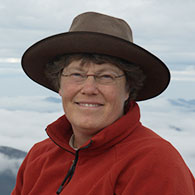
Host Institution: Oregan State University at Corvallis, Department of Forest Ecosystems and Society
Award Name: Fulbright Tasmanian Senior Scholarship
Discipline: Biological Sciences
Award Year: 2017
Professor Jones is an ecologist specialising in wildlife conservation and ecosystem restoration in the School of Biological Sciences at the University of Tasmania. She leads research on native marsupial carnivores, Tasmanian devils and quolls, how their ecological interactions might protect wildlife from feral cats, and how the Tasmanian devil is evolving to save itself from a devastating novel transmissible cancer.
Professor Jones’s Fulbright project, Harnessing Native Predators to Conserve Wildlife at Landscape-Scale, is a major opportunity to expand the scope of ecological science for tackling Australia’s biodiversity crisis. She will work with Professor Bill Ripple at Oregon State University to understand how ecological history influences the impacts on biodiversity of invasive predators, and to test the efficacy of native predators for invasive predator control. The project will contribute to understanding the natural ecological processes that can be harnessed to restore native species and functional ecosystems on large scales in unconfined landscapes.
Pearse Buchanan
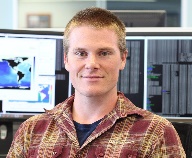
Host Institution: The Sigman Lab, Department of Geosciences, Princeton University, New Jersey
Award Name: Fulbright Postgraduate Scholarship
Discipline: Oceanography
Award Year: 2017
Pearse Buchanan is a PhD candidate at the University of Tasmania. He is interested in defining how the ocean has responded to, and driven climate change in the past through exploring the complex interaction between ocean physics and biogeochemistry.
His Fulbright project will focus on the oceanic nitrogen cycle, which forms an essential component of the ocean’s weighty role in the climate system. Past variations in nitrogen are tell-tale signs of changes in ocean productivity, and therefore whether the ocean acted as a net contributor, or consumer of greenhouse gases. Pearse will work with researchers at the Sigman Lab at Princeton University to explore how past changes in the oceanic nitrogen cycle affected the air-sea exchange of two major greenhouse gases, carbon dioxide (CO2) and nitrous oxide (N2O). In this way, the ocean’s continued role in the changing climate system can be better defined and predicted.
Professor Anya Reading
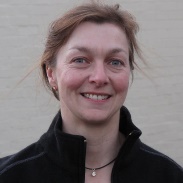
Host Institution: Center for Imaging the Earth's Interior, University of Colorado at Boulder
Award Name: Fulbright Tasmania Senior Scholarship
Discipline: Physics (Geophysics)
Award Year: 2016
Professor Reading leads the Computational Geophysics and Earth Informatics research group at the School of Physical Sciences (Earth Sciences).
Her scholarship focussed on advanced computation-based approaches to make best use of diverse, incomplete datasets relating to the deep 3D structure of the Antarctic Continent. Results will include insights into where to target future geophysical field campaigns for optimum benefit. The findings may galvanize the strong US Antarctic seismology community to partner with Australia in a new chapter of discovery through practical and fruitful future collaboration.
Dr Simon Jarman

Host Institution: Center for Coastal Studies, Provincetown
Award Name: Fulbright Professional Scholarship
Discipline: Biology (Genetics)
Award Year: 2015
Dr Jarman’s main research interest is the development of genetic methods to study age in animals. His research on whale age estimation has focused on changes in methylation of specific parts of whale DNA that can be measured in DNA purified from small skin samples to provide an estimate of the age of a whale.
His Fulbright Scholarship allowed him to work with whale ecologist Dr Jooke Robbins on the applications of population age structure information in whale ecology. Dr Robbins works on the population of humpback whales in the Gulf of Maine. This population has been studied for many years and contains the largest number of whales that have a known age from being recognised visually when less than one year old, and re-sighted in subsequent years. Samples from these known-age whales were essential for calibrating DNA-based methods for age estimation. Commercial harvesting of the Gulf of Maine humpback whales ceased in the early 1900s, whereas the east coast Australian whale fishery was still operating until 1962, which is within the 95 year lifespan of humpback whales. The research will compare the population age structures found in both areas and relate the modern day age structures to differences in past whaling history.
This work will also provide a foundation for application of genetic methods for age estimation in other animal species. Simon intends to develop similar genetic age estimation methods for other long-lived wild animals such as albatross and penguins and to use the age information for population status monitoring.
Professor Tim McCormack

Host Institution: The U.S. Naval War College. Newport
Award Name: Fulbright Senior Scholarship
Discipline: International Law (Law of Armed Conflict)
Award Year: 2015
Professor McCormack was the Foundation Australian Red Cross Professor of International Humanitarian Law (1996-2010) at the Melbourne Law School and also the Foundation Director of the Asia Pacific Centre for Military Law (2001-2010) – a collaborative initiative (established 2001) between the Melbourne Law School and The Australian Defence Force Legal Service. He has developed an international reputation for his expertise in International Humanitarian Law and International Criminal Law.
He used his Fulbright Scholarship to take up the prestigious position of Charles H Stockton Distinguished Scholar in Residence at the US Naval War College in Newport, Rhode Island (August 2015 – June 2016). He was also appointed Visiting Professor at Harvard Law School to teach in the Winter Term (January 2016). His research will focus on responsibility for violations of the law arising from emerging weapons technologies.
Professor Ted Lefroy

Host Institution: University of Washington
Award Name: Fulbright Tasmania Senior Scholarship
Discipline: Environmental Sciences (Natural Resource Management)
Award Year: 2015
Professor Lefroy was appointed Professor of Environment and Director of the Centre for Environment at the University of Tasmania. He led two national research projects, Landscape Logic and the Landscapes and Policy Research Hub that brought together ecologists, geographers, economists and social scientists to work with land managers, planners and policy makers on environmental problems in agricultural landscapes and protected areas.
At the University of Washington Professor Lefroy will conduct research for an illustrated book ‘The Myths of Nature and the Rise of Ecology”. The book will explore the gap between perceptions of nature in popular culture and concepts accepted within the scientific disciplines of ecology and conservation biology. He plans to critically test the ideas behind the book with scholars from a wide range of fields including history, sociology, philosophy, ecology and conservation biology. Ted is also keen to learn about research methods used in environmental history and the history and philosophy of science.
Joshua Dunn

Host Institution: William Paterson University
Award Name: Fulbright Postgraduate Scholarship
Discipline: Music
Award Year: 2014
Joshua Dunn, a Bachelor of Music graduate, started his degree at 15 years of age and finished with first class honours. His Scholarship allowed him to study a masters in the U.S, with a focus on the role of the acoustic guitar in contemporary jazz since the introduction of electric instruments in the 1940s. Specifically, exploring key qualities of the acoustic guitar through composition and performance, and an interpretation of music outside the jazz genre, in what is arguably the home and birthplace of jazz.
Professor Richard Eccleston

Host Institution: George Mason University
Award Name: Fulbright Tasmania Senior Scholarship
Discipline: Political Science (Political Economy)
Award Year: 2014
Professor Richard Eccleston is a Professor in Political Science. His research focuses on economic governance, specifically the politics of taxation and public finance. He studied at the Centres of the Public Service in the Department of Public and International Affairs at George Mason University, Virginia.
He used his Scholarship to study the changing nature of fiscal federalism in the U.S. and Australia in the aftermath of the financial crisis, specifically considering implications for state finances and the broader political economy of federalism.
Associate Professor Robert Shellie

Host Institution: Purdue University
Award Name: Fulbright Tasmania Senior Scholarship
Discipline: Chemistry – Analytical Chemistry
Award Year: 2013
Associate Professor Robert Shellie, ARC Australian Research Fellow with the University of Tasmania spent three months at Purdue University to further his work in the development of an in-situ system for chemical measurement of environmental pollutants in remote locations. This could be used in locations such as Antarctica, the sub-Antarctic, and by extension industrial sites, and remote communities.
Associate Professor Shellie has led research into developing instrumentation for environmental monitoring of fuel spills in Antarctica and the sub-Antarctic, and this is what sparked his interest in the development of this technology.
Dr David Gwyther

Host Institution: University of Texas at Austin
Award Name: Fulbright Postgraduate Scholarship
Discipline: Environmental Sciences
Award Year: 2013
Dr Gwyther, PhD student, spent twelve months at the University of Texas at Austin through his Fulbright Scholarship. He studied the interaction between the ocean and the Antarctic ice shelves. His project aimed to improve simulations of ice shelves in collaboration with the University of Texas at Austin, leading to improved understanding of ice shelf melting, ice sheet flow and global sea level rise.
Dr Gwyther worked with the ICECAP program, one of the most comprehensive airborne observing systems that exists, to measure properties of ice shelves in the Totten ice shelf region of East Antarctica.
Dr Jessica Walker
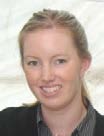
Host Institution: United States Naval Academy Annapolis
Award Name: Fulbright Tasmania Postdoctoral Scholarship
Discipline: Renewable energy technology (tidal power)
Award Year: 2012
Dr Walker travelled to the United States Naval Academy Annapolis, Maryland for 12 months to undertake research into the renewable energy technology, tidal power.
In Maryland, Dr Walker carried out detailed testing of a prototype horizontal-axis tidal turbine to obtain performance curves and flow field maps under roughened and biofouled conditions. This data was invaluable to turbine designers in predicting long term performance of turbines in actual marine environments, and researchers who can utilise the data in validating models of turbines for ongoing design optimisation.
Dr Sue Baker

Host Institution: Washington State Department of Natural Resources
Award Name: Fulbright Postdoctoral Scholarship
Discipline: Forestry
Award Year: 2012
Dr Sue Baker, a research fellow at the University of Tasmania, spent three and a half months working with the University of Washington and the Washington State Department of Natural Resources evaluating the benefits of retention forestry practices for biodiversity conservation.
Her project critically assessed the role of unlogged patches within coupes in facilitating re-establishment of mature-forest biodiversity in logged areas.
Dr Natasha Wiggins

Host Institution: Boise State University, Idaho and Washington State University
Award Name: Fulbright Tasmanian Postdoctoral Scholarship
Discipline: Biological Sciences
Award Year: 2011
Dr Wiggins’s scholarship allowed her to investigate the relationship between the pygmy rabbit and its key food source, sagebrush.
Dr Wiggins investigated the influence of diet quality, availability and temperature-dependent tolerance to plant chemistry between pygmy rabbits and sagebrush. Her research provided important insights into how herbivores respond to seasonal differences in diet quality and availability, and the influence that temperature may play in altering herbivore responses to plant chemistry. Her research will provide a greater insight into eucalypt-herbivore systems in Australia.
Professor Graham Edgar

Host Institution: NatureServe, Virginia
Award Name: Tasmanian Senior Scholarship
Discipline: Environmental Sciences
Award Year: 2010
Professor Edgar used his Scholarship to research the effectiveness of marine protected areas as a tool for biodiversity conservation at the Centre for Applied Biodiversity Science, Conservation International in Arlington, Virginia for four months.
The major aim of the project was to improve marine conservation planning through the development of models that accurately predict ecological benefits arising from one important tool available to managers, the declaration of marine protected areas (MPAs).
The project provided information critical for management of marine biodiversity by quantifying relationships between ecological characteristics of reef communities and marine protected zones of different size and shape.
Mr Simon Gamble

Host Institution: National Renewable Energy Laboratory (NREL), Colorado
Award Name: Fulbright Professional Scholarship
Discipline: Renewable Energy
Award Year: 2010
Mr Gamble, spent four months with the National Renewable Energy Laboratory (NREL) researching the application of renewable energy technology in modern power systems. The information gained supported the development of a renewable energy power system and research facility for the Bass Strait Islands and create relationships to assist building the University of Tasmania Centre for Renewable Energy and Power Systems (CREPS).
The objective of the program was to seek out world renowned scholars and practitioners in the application of renewable energy technologies in modern power systems.
Dr Gretta Pecl

Host Institution: University of Alaska
Award Name: Fulbright Tasmanian Postdoctoral Scholarship
Discipline: Biological Sciences - Marine Biology
Award Year: 2010
Dr Pecl spent four months at the University of Alaska, Fairbanks undertaking research into how ecological modelling can be used to assess impacts of climate change on the productivity and sustainability of marine resources and used the Alaskan Red King Crab and Tasmanian Rock Lobster as case studies.
Understanding connections between oceanographic processes and responses to climate change by marine species are challenges facing fisheries scientists and resource managers the world over. By comparing and contrasting different systems facing similar challenges useful generalities will emerge, assisting us to develop broadly applicable approaches toward sustainable management.
Dr Peter Jarvis

Host Institution: University of California, Berkeley
Award Name: Fulbright Tasmanian Senior Scholarship
Discipline: Physics
Award Year: 2009
Dr Jarvis used his Scholarship to undertake foundation studies in mathematical physics and mathematical biology for four months at the University of California (Berkeley) and University of Texas (Austin).
One aspect of his research is the application of mathematical tools, known from quantum physics, to phylogenetics, the study of how organisms relate in evolutionary terms. Deriving better techniques for the analysis of sequence data will have implications for the preservation of Tasmania’s unique natural heritage.
Dr Natalia Galin

Host Institution: University of Kansas
Award Name: Fulbright Postgraduate Scholarship
Discipline: Electrical Engineering
Award Year: 2008
Dr Galin’s Scholarship provided an opportunity to continue her research at the Centre for Remote Sensing of Ice Sheets (CReSIS) at the University of Kansas and NASA/Goddard Space Flight Centre in Maryland.
Her research aimed to bring together geophysics and radar engineering to develop an airborne radar capable of measuring the depth of the snow cover on Antarctic sea ice. Her work assisted in the development of new radar tools and satellite sensors equipped with more accurate instrumentation, and the potential to estimate other physical properties of snow.
Dr Keith Pembleton

Host Institution: Purdue University
Award Name: Fulbright Postgraduate Scholarship
Discipline: Agriculture/Rural Technologies
Award Year: 2008
Dr Pembleton spent twelve months at Purdue University, Indiana undertaking courses in molecular biology and advanced crop physiology, aiming to develop a better understanding of gene expression that will improve the management of lucerne, particularly with regard to drought tolerance.
Ben Mooney

Host Institution: University of Maryland
Award Name: Fulbright Tasmanian Postgraduate Scholarship
Discipline: Plant Science
Award Year: 2007
Ben Mooney’s Scholarship gave him the opportunity to work at the University of Maryland Biotechnology Institute and the State University of New York, Syracuse, to shed scientific light on marine algae that cause multi-million dollar fish kills in aquaculture operations around the world.
Dinoflagellate blooms - sometimes called ‘red tide’ - affect Tasmania’s Atlantic salmon farms, finfish aquaculture operations in the United States and pose environment threat in the Swan River, Western
Australia. The global problem appears to be worsening and its management requires more precise knowledge of the mechanism used by the algae in attacking fish.
Oscar Potter

Host Institution: Molecular Foundry, Lawrence Berkeley National Laboratories, California
Award Name: Fulbright Postgraduate Scholarship
Discipline: Chemistry
Award Year: 2007
Oscar Potter undertook research to develop new functionalised polymer materials that can facilitate separation and digestion of biochemical analytes.
Paul Hubbard

Host Institution: Maxwell School of Citizenship and Public Affairs, University of Syracuse
Award Name: Fulbright Postgraduate Scholarship
Discipline: Law
Award Year: 2006
A graduate recruit with the Commonwealth Government, Department of Treasury, Paul Hubbard’s Scholarship enabled him to undertake a Masters of Arts in International Relations at the Maxwell School of Citizenship and Public Affairs, University of Syracuse.
A first class honours graduate in Arts/Law from the University of Tasmania with a major in Chinese. Through his Fulbright Award he pursued his interest in the economy, politics and international relations of China.
Cheryle Hislop

Host Institution: University of Delaware’s Centre for Marine Policy/Woods Hole Oceanographic Institute
Award Name: Fulbright Postgraduate Scholarship
Discipline: Political Science and Public Policy
Award Year: 2004
Cheryle Hislop a graduate from the University of Tasmania where she undertook a PhD in Political Science and Public Policy. Her Fulbright Scholarship allowed her to conduct research on the feasibility of creating high sea marine protected areas using an institutional analytical development framework. Cheryle’s research incorporated geopolitics, practical philosophies, socio-cultural complexities, legal and policy intrigues, and centuries of history. She spent her first six months at the University of Delaware’s Centre for Marine Policy, researching and contributing to the U.S. Ocean and Coastal Policy Course then went to Woods Hole, Massachusetts where she spent the final six months at the Marine Policy Centre, Woods Hole Oceanographic Institution.
During her studies Cheryle also participated in a Natural Resources Forum in Arizona, which was one of the many Fulbright Enrichment Programs being offered by the U.S. Department of State.